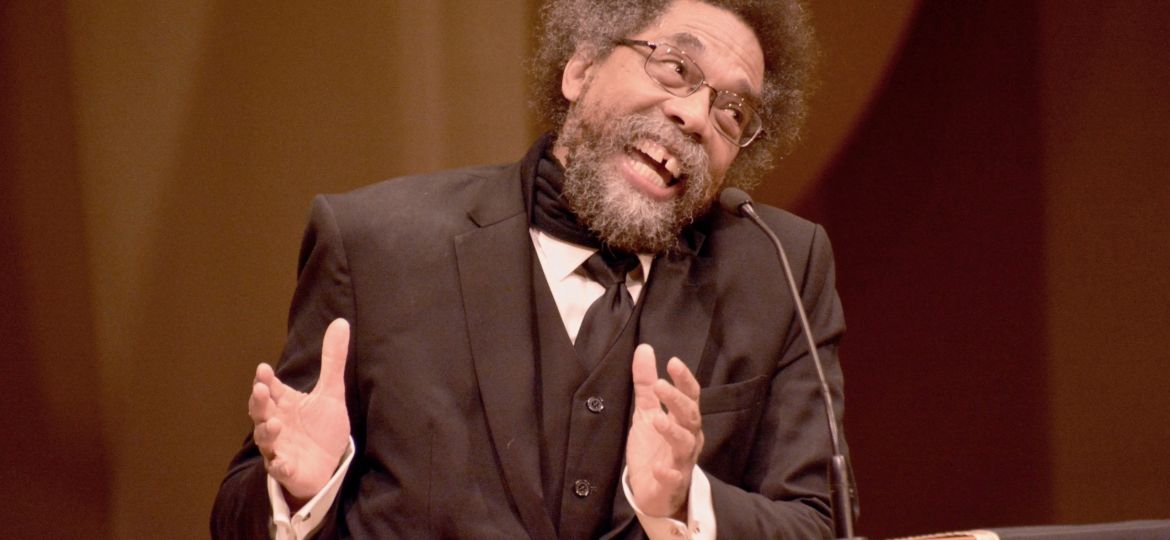
Dr. Cornel West delivered a wide-ranging and impassioned speech in Boe Chapel on Friday, Oct. 27, condemning America’s “spiritual blackout” and urging self-examination. Appearing as the Political Awareness Committee’s (PAC) fall speaker, West’s talk concerned personal character, education, politics and social justice. He is Professor of the Practice of Public Philosophy at Harvard University, and is known across the country as a provocative and distinguished intellectual.
According to PAC Coordinator Abdul Wake ’19, PAC invited West in order to gain a fresh perspective on politics from a fiercely non-partisan polemicist and celebrated scholar.
“He’s also very critical of the standing that this country takes, that of the reigning political ideology, that of neoliberalism, that of neofascism,” Wake said.
West’s speech was the first PAC event for which attendees were required to obtain tickets. Last spring, Angela Davis’ speech attracted far more attendees than Boe Chapel had room for, prompting PAC to create an attendance cap for West’s appearance. Wake explained that the Music Entertainment Committee’s (MEC) ticketing of concerts provided an example for PAC to follow.
West’s speech focused heavily on personal character, education, American moral decay and the power of love. Grounding his message was an exhortation to the audience to engage in critical self-reflection aimed at uncovering one’s moral and spiritual principles.
“You have to discover who you really are: not the spectacle, not the image,” West said. “What kind of litmus test will you meet in terms of the moral and spiritual criteria?”
West tied his overarching message to the concerns of PAC, arguing that personal character and unbreakable principles must come before political action.
“What kind of human beings will we choose to be? Who’re you gonna be, what kind of legacy, what kind of witness? That’s the question when you talk about political awareness, you don’t start with public policy,” West said. “You don’t start with ideology, you don’t even start with analysis. You start with ‘what kind of person are you?’”
West bemoaned the role models and celebrities worshipped by younger generations, denouncing them as market-driven and superficial.
“Where’s the morally latent exemplars who cut against the grain, who raise the most fundamental question, and, most importantly, [are] willing to take a risk for something bigger than their careers?” West said.
In West’s eyes, such a perspective marginalizes you in our current society, particularly in one uncomfortable redressing historical wrongs.
“America has been in denial of the funk of its own stuff … Never believe the lie that slavery is the original sin of America,” West said. “Slavery was the second one, it was the treatment of our precious and our priceless indigenous brothers and sisters.”
To West, one of the crucial components to building character is interrogating beliefs through the Socratic method. West urged students to embrace this kind of self-scrutiny and analysis as they advance through college.
“When you graduate from St. Olaf, it doesn’t necessarily mean that St. Olaf has been through you unless you have been Socratized. I’m talking about that deep education,” West said.
West argued that deep education, combined with personal cultivation of moral character, can counteract the nihilism and selfishness ailing society.
“We’re living in a moment of spiritual blackout, which is a moment of the relative eclipse of integrity, of honesty, of decency, of courage,” West said. “These days, too many young folk are taught what? The end of life is to be the smartest in the room? How empty, how hollow, how shallow. Let the phones be smart, you’ve got to be wise.”
West traced Trump’s election to this “spiritual blackout”, and condemned what he perceives as a materialistic and rapacious societal ethos filling the spiritual vacuum. He ended his speech with a return to his central message of cultivating personal character and laid out some words of guidance.
“Confront oppression. Integrity, intellectual integrity: tell the truth, no matter how popular. Spiritual integrity: stay on the love train … I’m talking about love of truth.”
West concluded his talk with 45 minutes of answering questions from the audience on a wide range of subjects. Audience members posed questions on race and Black Lives Matter, the Minneapolis mayoral campaign, political activism, West’s criticism of President Obama and many other topics.

